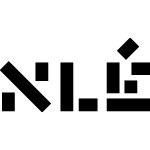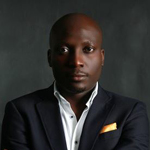

Makoko Floating School 

Location & Year
Lagos, Nigeria 2011-2013
Area
220 m2
Project Team
NLÉ, Makoko Community Building Team, BKVV Architects, Dykstra Naval Architects, Pieters Bouwtechniek, SPCIT, Roel Bosch Architecten, Ikeyi & Arifayan, Matrix Designs, Solarmate Engineering Nig ltd.
NLÉ Team
Kunlé Adeyemi, Lisa Anderson, Thijs Bouman, Leslie Ebony, Marije Nederveen, Segun Omodele, Adekunle Olusola, Chryso Onisiforou, Martin Oreoluwa, Berend Strijland, Monica Velasco
Makoko Waterfront Community
The Baales of Makoko/Iwaya Waterfront Community, with special mention of Baale Emmanuel Shemede, Noah Jesutin Shemede, Jeunbete Shemede, Makoko Community Development Association & Youth Leaders and Makoko Floating School building team.
Technical Collaborators
Blok Kats van Veen Architects, Dykstra – Naval Architects, Thieu Besselink, Roel Bosch, Urhahn + Borra, Pieters Bouwtechniek, Ikeyi & Arifayan, Matrix Design & Works Nig ltd., Solarmate Engineering Nig Ltd.
Client
Makoko Waterfront Community
Website
A floating prototype for the African Water Cities
Makoko Floating School is a prototype structure that addresses physical and social needs in view of the growing challenges of climate change in an urbanizing African context. It is a movable ‘building’ or ‘watercraft’ currently located in the aquatic community of Makoko in the lagoon heart of Africa’s second most populous city ‐ Lagos, Nigeria. It is a floating structure that adapts to the tidal changes and varying water levels, making it invulnerable to flooding and storm surges. It is designed to use renewable energy, to recycle organic waste and to harvest rainwater.
An estimated 100,000 people reside in Makoko in housing units built on stilts. Yet the community has no roads, no land and no formal infrastructure to support its day‐to‐day survival. In many ways, Makoko epitomizes the most critical challenges posed by urbanization and climate change in coastal Africa. At the same time, it also inspires possible solutions and alternatives to the invasive culture of land reclamation.
Until now Makoko has been served by one English speaking primary school, built on uneven reclaimed land, surrounded by constantly changing waters. Like many homes in Makoko, this has rendered the primary school building structurally precarious and susceptible to recurrent flooding. Sadly, the inability of the building to effectively withstand the impact of increased rainfall and flooding has frequently threatened local children’s access to their basic need – the opportunity of education.
no images were found
In response to this and in close collaboration with the Makoko community, NLÉ has developed a prototype floating structure that will serve primarily as a school, whilst being scalable and adaptable for other uses, such as a community hub, health clinic, market, entertainment center or housing. The prototype’s versatile structure is a safe and economical floating triangular frame that allows flexibility for customization and completion based on specific needs and capacities.The 220 m2 frame or pyramid building is 10m high with a 10m x 10m base. It is an ideal shape for a floating object on water due to its relatively low center of gravity, which provides stability and balance even in heavy winds. It also has a total capacity to safely support a hundred adults, even in extreme weather conditions.
The building has three levels. The 1st level is an open play area for school breaks and assembly, which also serves as a community space during after hours. The 2nd level is an enclosed space for two to four classrooms, providing enough space for sixty to a hundred pupils. A staircase on the side connects the open play area, the classrooms and a semi enclosed workshop space on the 3rd level. The simple yet innovative structure adheres to ideal standards of sustainable development with its inclusive technologies for renewable energy, waste reduction, water and sewage treatment as well as the promotion of low–‐carbon transport. Furthermore a team of eight Makoko based builders constructed it using eco-friendly, locally sourced bamboo and wood procured from a local sawmill.
Construction began in September 2012 with floatation mock-ups and testing. Recycled empty plastic barrels found abundantly in Lagos were used for the building’s buoyancy system, which consists of 16 wooden modules, each containing 16 barrels. The modules were assembled on the water, creating the platform that provides buoyancy for the building and its users. Once this was assembled, construction of the A‐frame followed and was completed by March 2013. Makoko Floating School is now in regular use by the community as a social, cultural and economic center and recently welcomed its first pupils who now use it as a primary school.
The project was initiated, designed and built by NLÉ in collaboration with the Makoko Waterfront Community, in Lagos State. The project was initially self‐funded by NLÉ and later received research funds from Heinrich Boll Stiftung as well as funds for its construction from the UNDP/Federal Ministry of Environment Africa Adaptation Programme (AAP).
In December 2015 it received funding from Lagos State Ministry of Tourism, Arts & Culture through One Lagos Fiesta to install solar power and lighting to the waterfront. The installation was also supported by Tafeta.
Makoko Floating School is a ‘prototype’ building structure for NLÉ’s proposed ‘Lagos Water Communities Project’ and its ‘African Water Cities’ research project.
On NLÉ
NLÉ is an Architecture, Design and Urbanism practice focused on developing cities. Founded in 2010 by Nigerian-born architect, Kunlé Adeyemi, founded it currently runs its operations from Amsterdam, the Netherlands and Lagos, Nigeria.
One of the megacentury’s dominant and unstoppable trends is urbanization. The outcome is a growing number of megacities worldwide, all of which face the same challenges. Within this context just as Silicon Valley acts as the home for new technologies it is the cities of the developing world that will generate responsible solutions for the larger world. As thinkers, creatives and agents of change, NLÉ’s role is to reveal these solutions and apply them so that we shape the physical, human and commercial structures that are critical to the near future of human civilization. Our activities encompass city development research and strategy advisory service, conceptualization and creative structuring, architecture and product design, infrastructure design, arts and cultural urban interventions.






 Čeština
Čeština